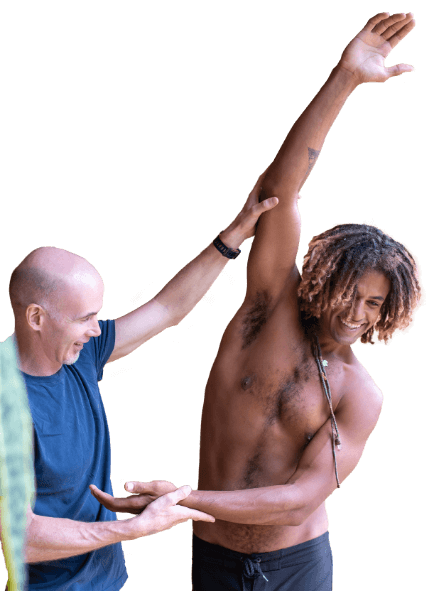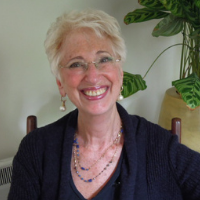
The above question is one that I get asked a lot.
It’s one I’m going to attempt to answer here but before I do I want to pre-empt any counter arguments that might be brewing in the back of your mind. Especially if you’ve been told that nutrition and diet have nothing to do with back pain and scoliosis.
Unconscious Bias
Back in the 90’s I was studying Sport and Exercise Science at Exeter University in the UK. We were looking at public health, in particular obesity. Now, you may have heard two arguments when it comes to obesity, one is that you should eat less, the other is that you should exercise more.
So, here’s what I found out then, and it still stands true today. One of the main researchers in the UK who said that exercise had no effect on obesity was and obese marathon runner! On the flip side, the researchers who said it was mainly due to diet were skinny and didn’t exercise much. There research on the surface looked impartial and unbiased, but it still came from them and was written and presented from their world view. So, you will hear that diet, scoliosis and back pain are not linked, but ask yourself who is telling you this. If it is your MD they may not have training in this area, or they were told there was no relationship 20 years ago when they were a student. There is a counter argument for everything, you just need to dig a little to find out who’s telling it you and why.
Michelle Obama
Remember back to Michelle Obama’s campaign for health kids lunches? It was part of the Healthy Hunger Free Kids Act. What was it called in the end? “Let’s Move”, or something like that, the reason that she shifted focus to activity rather than diet was that most of the funding for her program came from big food corporations who want to be seen promoting activity as the panacea taking the spot light away from diet. These same companies are always seen sponsoring large sporting events like the Olympics, because they want to align themselves with activity and reduce the focus on diet…clever isn’t it?
Diet and Exercise a potent combination
With this in mind you can probably read between the lines and conclude that diet and exercise are going is going to be the most beneficial combination for your general health.
The same applies to scoliosis and back pain.
An idiopathic scoliosis by itself does not cause back pain. However, the consequence of having a curve in your spine is that over time certain areas of your spine become warn and overused. This is where the pain comes from.
If you are eating a diet that your body struggles to digest, a diet that is ‘pro-inflammatory’ then the pain is generally going to be worse (the same is true for people with depression, they generally feel more pain than people without, but that is a story for another time).
So, what foods should you avoid?
To decrease inflammation in your body you need to eat foods that are good for you gut. So, what do these look like? Sometimes it easier to approach this from the other way round and, what food shouldn’t I eat.
To quote Sean Croxton, founder of Underground Wellness,
“Just Eat Real Food” or JERF for short.
So, should you eat processed food?
No – most processed foods contain a host of chemicals (stabilizers, colours, artificial flavours and E numbers), too much salt and too much sugar.
In particular to decrease pain you should avoid these 3 foods:
1.Sugar:
This appears in many guises and it’s important to know that when I say sugar I’m not just talking about the white stuff. As this image below from https://superfoodsrx.com shows it has many names….

2. Dairy – During my training as a Wahls Protocol clinician we spent some time debating whether or not humans should consume cow milk. Well, I can tell you now that for optimal health….
…we should not be eating dairy products.
Forget about the fact that we are the only animal on earth that drinks another mammals milk, or that the enzymes to digest lactase (the milk sugar) naturally stop working at about 7 years old – by which time we should have stopped breast feeding.
But think about this:
This study showed a link between dairy consumption and higher rates of M/S.
This study shows that kids have worse Atopic Dermatitis (really irritated skin) if they drink milk.
This study describes how milk proteins look like parts of the nervous system and the body starts to attack it’s own nervous system while it is dealing with milk proteins, a process called molecular mimicry.
This review shows how milk can change our digestive system for the worse.
This review shows how certain food, including dairy, can increase the symptoms of schizophrenia.
Also, we must remember that there is a lot of pressure from the dairy lobbyists to stop studies that show the detrimental effects of dairy consumption, and on the flip side there isn’t much to gain by showing that it’s bad for us. Unless you are selling a dairy replacement.
3. Be careful of eating lots of vegetable oils.
To help explain this I’m going to go back in history a little to some landmark studies back in the ’60 in which the scientists showed that a decrease in animal products can reduce cholesterol. A the time a lower cholesterol score was considered healthily.
What we weren’t told was that in those experiments it emerged that the people who were fed vegetable oils (they were in a mental home so what they consumed was highly regulated) did have lower blood cholesterol but started to die sooner than the ones who had butter and other animal products.
This report this wasn’t part of the study, so this information was lost to the sands of time. However, recently Australian researches have picked up the original data and started to make sense of it. It turns out that the decrease in animal products was replaced by an increase in vegetable oil, namely linoleic acid. This was in the margarine they ate and in the foods that was fried in it.
Anyway this increase in linoleic acid consumption can be inflammatory for the body and end up causing heart disease which is the very thing it was designed to decrease the risk of!
So if you want to decrease inflammation and increase life expectancy don’t eat too many vegetable oils.
So were the vegetable oils in our diet anyway….good question…did you know that a French fry is half potato and half oil?
Then we have to consider hydrogenated oils, these are man made oils that are commonly found in things like margarine and processed foods….but you won’t be eating them if you stick to the Just Eat Real Food mantra…
Also, they are being phased out by the US government which should tell you something…
So, now you have dealt the the inflammation your pain will start to decrease.
Foods and Scoliosis.
Some studies have shown that people with scoliosis, especially teens, have hormonal and neurotransmitters deficiencies, including serotonin, melatonin, calmodulin, leptin, and growth hormones, like estrogen. These compounds are built from fats, amino acids and minerals that we get from our diets.
Some foods prevent the uptake of minerals and should be avoided (we discussed most of those earlier) and other contain more high quality fats, proteins and minerals that others.
So, how does a lack of certain neurotransmitters contribute to scoliosis. For a detailed look at exactly how this works for young people I suggest you look at this study in the Journal of Current Pediatrics.
Or this study in the Journal Scoliosis that also looks at the role of neurotransmitters and scoliosis.
What Should You Eat?
A balanced diet isn’t rocket science. Leave the sugary cereals, diary and processed foods alone and eat a ton of leafy green vegetables, some high quality meats and fats and drink lots of water…that’s it…right there, the key to a long and healthy life. If you don’t believe me, look at the work of Dan Buettnerthe author of the book Blue Zones. He studied the healthiest, longest living people on the planet and summed up their diets as above. They also had purposeful lives, lived stress free and generally had a great community around them, but let’s just change one thing at a time.
Some people just aren’t willing or able to make those changes to their diets. I get that and some of the lack can be made up for with supplements. However, the exercise physiologist Paul Chek sums up the problem of supplementing over a bad diet like this: Imagine building a boat out of rotten wood (the main part of your diet) but holding it together with golden nails (the supplements), generally not a good idea. Now imagine solid hard wood for the boat (your base diet) held together with amazing nails (supplements) now that a good idea.
There are so many supplements out there I don’t really recommend any, but the folks over at Scoli Smart do, so you can see what they recommend here.
Ideally you would have your neurotransmitters tested by peeing into a cup first, then you could tailor your supplements to your exact deficit.
Having said that, this study showed that a decrease in selenium might be a factor in scoliosis. It’s easy to add some foods that are rich in selenium into your diet, so start to include nuts, and some meat products (organic and free range being the best).
There is an industry that is slowly growing about recommending specific supplements for people with scoliosis. But before you end up taking all your nutrients in pill form I suggest you stop eating bad things that could prevent you from absorbing good things, and then flood your body with the best quality, nutrient dense foods you can find. Once you have done that, then be my guest, supplement away…
As a Wahls Protocol certified health coach I can assess your diet and read your lab results. From there I can help create a specific diet for you that can be another “bow to your string” in your fight against scoliosis.
If you would like that just use the contact page on this site and we’ll discuss your best next step.

Over the last 10 years Ed has been building a YouTube library to help people manage their own pain or movement limitations and increase performance through exercise. He regularly adds videos so be sure to subscribe and visit regularly


"Oh My Gosh- I am ALREADY feeling relief after a few days! I used to wake up 2-3 times a night with shooting pain that anti inflammatories couldn't touch. Now I have been waking up just because I want to notice what it feels like to lay in bed pain free- THANK YOU!."

"When I first started with your program I was experience a lot of pain. Walking was difficult. I had to stop and catch my breath every few minutes and lean against a wall for support. Now when I walk with my husband we go for over an hour. I never had to sit down and stop...and, hardly any pain!!! 😊😊 I can’t thank you enough."
Frustrated that you aren't recovering fast enough?
Discover how to heal from illness and injury using movement, food and lifestyle.
Leave a Reply